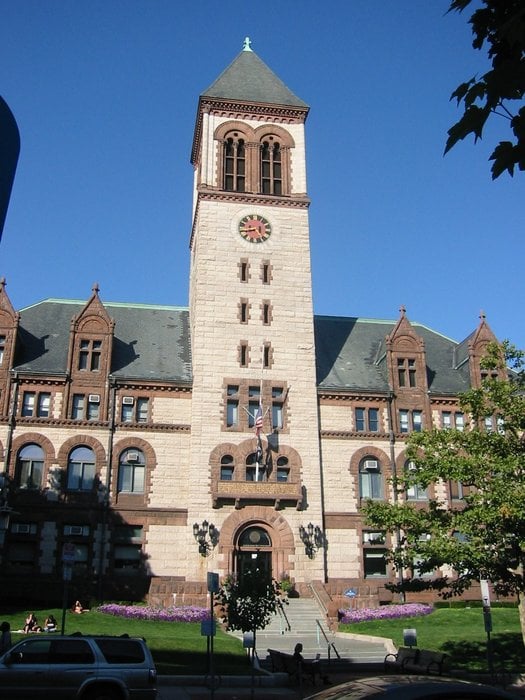by Anonymous
The MIT-Epstein scandal that recently roiled the academe shouldn’t come as a surprise, although it has elicited such reactions from many. The fact that the attention surrounding this fiasco has focused mostly on Joi Ito, the ex-head of the MIT Media Lab revealed to have actively sought funding from convicted pedophile Jeffrey Epstein, misses the larger point of how universities operate. In Joi Ito’s earlier defense, authors of the now-archived petition “We Support Joi” detailed how Joi was forced to take Epstein’s donations due to fundraising pressure from within the MIT administration. Does the fact that Joi may have been the victim of the administration’s greed exculpate him from his actions? The answer — even without the revelations in Ronan Farrow’s investigation that Joi received money for his personal startups — should be no.

In the light of Farrow’s New Yorker piece, acclaimed Harvard Law professor and friend of Joi Ito Lawrence Lessig wrote a personal Medium piece on the four types of donors universities solicit money from. He points out that universities, if they accept money from criminals who are wealthy or wealthy people whose wealth has done great harm, should do so anonymously. Anonymity, in his words, “is the least a university should do to avoid becoming the mechanism through which great wrong is forgiven. Were I king, I would ban non-anonymous gifts of type 3 [criminals who are wealthy] or type 4 [wealthy people whose wealth has done great harm].” What is made clear in Lessig’s piece is that universities should just continue to take money from dubious sources, but should just cover up their tracks better. This is another way of saying that universities should keep doing what they are already doing to get as much money as they can, just without naming the sources.
While Joi Ito has borne the brunt of the Epstein-scientist connection, famous biologist George Church has gotten off with a public apology for his “nerd tunnel vision”, and Martin Nowak has yet to release any statements regarding his connection with Epstein. One can only hope that there will be a domino effect from Joi’s resignations that will result in the dismantling of the academic status quo, or at minimum, the public vilification of those scientists who prefer to remain in their ivory towers. But the real problem here, which Joi Ito and other science personalities will be made scapegoats of, is how current universities in the US operate. Universities enjoy a non-profit status, but their activities to accumulate capital can put corporations to shame. To provide a few examples: Harvard is one of the biggest landlords in the Greater Boston Area and continues its gentrification program that is displacing poor communities while it also invests in private prisons and deforestation programs; MIT continues to receive money from the Saudi government, even after the public killing of the journalist Jamal Khashoggi, and of course Raytheon, which provides the Saudi govt with bombs to destroy Yemen. Tufts has received multiple generous donations from the Sackler family, who built their fortune through manufacturing the opioid crisis, for which they are being sued, and more recently has sought money from the Saudi Royal family as well, among other questionable sources. These are just Boston-area examples and of non-profit entities. For-profit universities, such as Liberty University, do not even pretend to maintain a facade of charity – they actively defraud their students to accumulate capital.
It is possible that the need to continuously generate wealth is required by these institutions to advance research and provide high quality education to their students. But a look at the administrative bloat in US universities and colleges, coupled with the skyrocketing cost of tuition, reveals a different scenario. The increasing salaries that university presidents are drawing annually are indicators of where the money is going. This is not surprising considering the steady neoliberalization of public universities over the past decades and their infestation by corporate interests. In fact, Tier 1 research universities such as Harvard and MIT that obtain large amounts of taxpayer money from government agencies through grants (grants brought in by faculty members, graduate students, and postdocs) continue to sell themselves out to the biotech sector and do its bidding in private. In fact, the biotech boom happening in Kendall Square in Cambridge is actively displacing local residents and contributing to the housing crisis in Boston, akin to the Silicon Valley tech-entrepreneur-induced housing crisis in the San Francisco Bay Area. The encroachment of private interests into public universities has been actively encouraged by the capitalist state since the 1980s through legislation . The steady neoliberalization of research work has already resulted in bitter disputes over biotech intellectual property, with the most recent example being the CRISPR battle. The whole concept of valuing intellectual property over biological materials, or any sort of scientific innovation, is a capitalist invention, one that undermines the collaborative effort behind any scientific project. The pharmaceutical companies love to cite the amount of money they spend bringing a drug to the market as justification for their exorbitant drug prices, but none of that accounts for the money that taxpayers have poured into the process — many of whom cannot even afford said drugs!
In their relentless pursuit of wealth, the universities and their managerial class squeeze the workforce harder and harder — faculty (tenured and adjunct), graduate students, and postdocs are all exploited for their labor as they face more and more restrictions on their rights as workers. Additionally, the managerial class protects its own interests and the academic heteropatriarchy, especially in the cases of harassment and sexual violence. Cases of sexual harassment of students and faculty members by male, older faculty members are kept under wraps until the whistle is blown, such as in the cases at Dartmouth and the University of California system. In some cases, the whistleblowers are the ones who end up facing consequences, such as the case at Vanderbilt. In the classic move to divide and conquer, the managerial class in university administration pits different ends of the political spectrum against one another while receiving money from all sources, without any sort of enforceable moral or ethical guidelines. The universities also enforce the police state that protects the capitalist order — it is hard to forget the pepper-spraying cop at UC Davis or, more recently, how Harvard police officers aided Cambridge police in removing anti-ICE protestors from the Amazon office.
These institutions, fattened by their greed, have also become too sure of their own secure status quo. But the workers are rising — graduate students and adjunct faculty are organizing across the nation. Female faculty and students are coming forward to hold the harassers and sexual abusers accountable, seeking to break the heteropatriarchy that is so entrenched in these institutions. In the light of the MIT-Epstein scandal, the MIT professor Seth Mnookin writes that colleges and universities would do well to critically evaluate the sources of their donations. While that is a sensible step forward, it cannot stop there. We must abolish the ivory tower to disentangle the public goods of science and education from the web of oppression they are caught in. The managerial class of the universities needs to be held accountable for its exploitation of the workers and its contribution to upholding the heteropatriarchal capitalist order. Current organizational forms of universities must be dismantled and replaced with forms that are equitable and free from the coercion of private interests, regardless of the “morality” of the sources they come from, for ALL money is blood money.



Leave a Reply